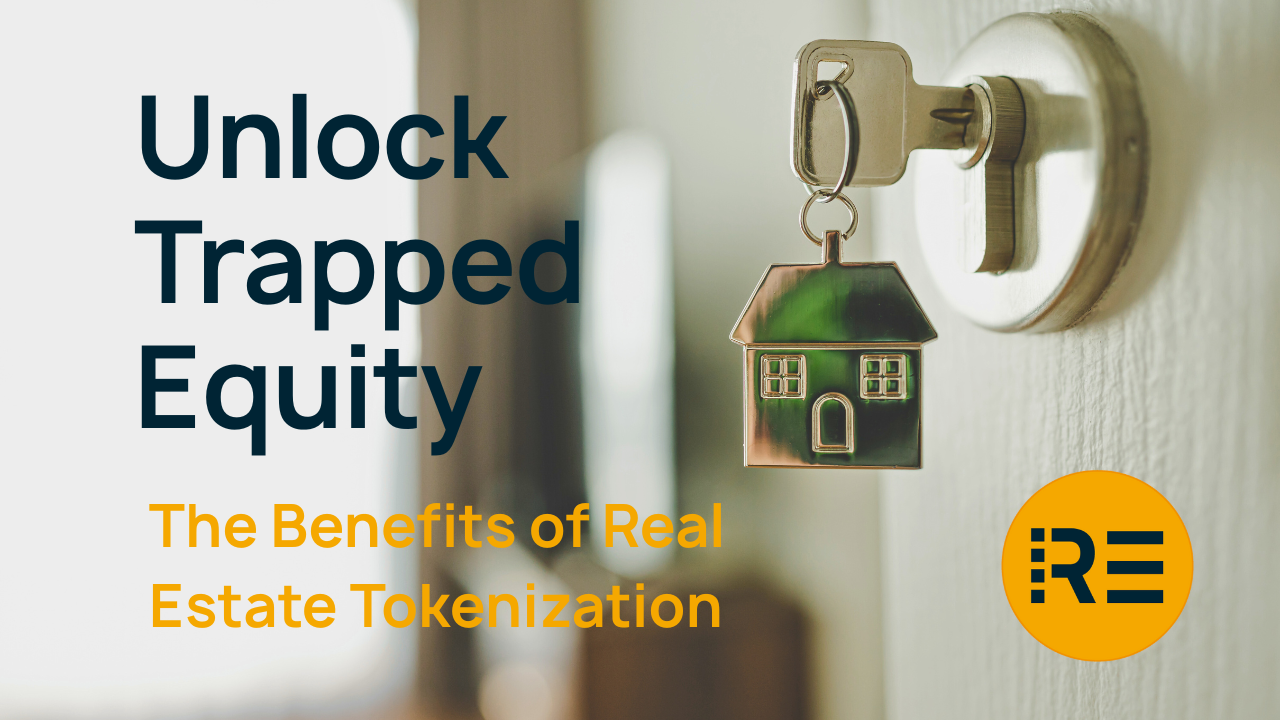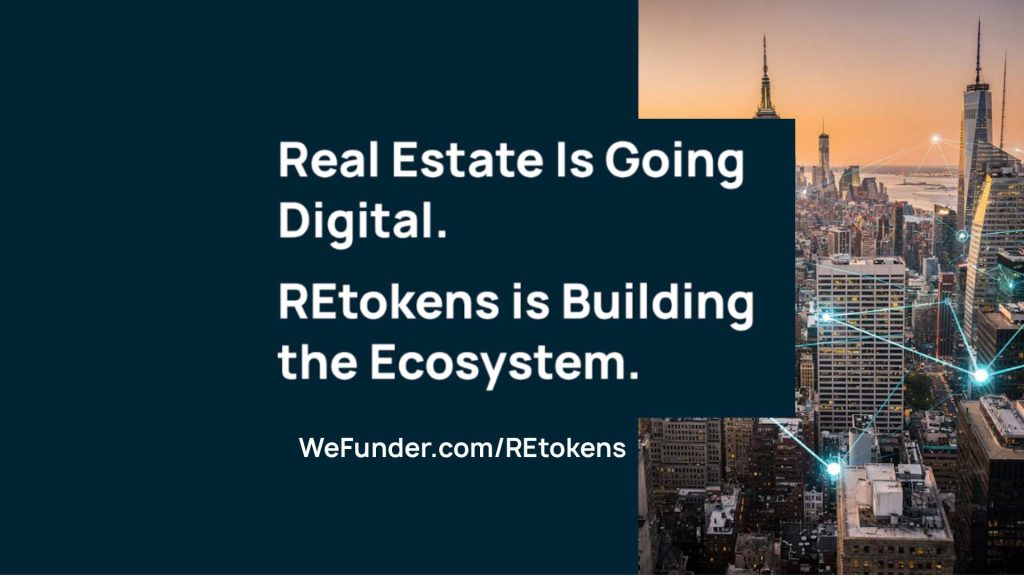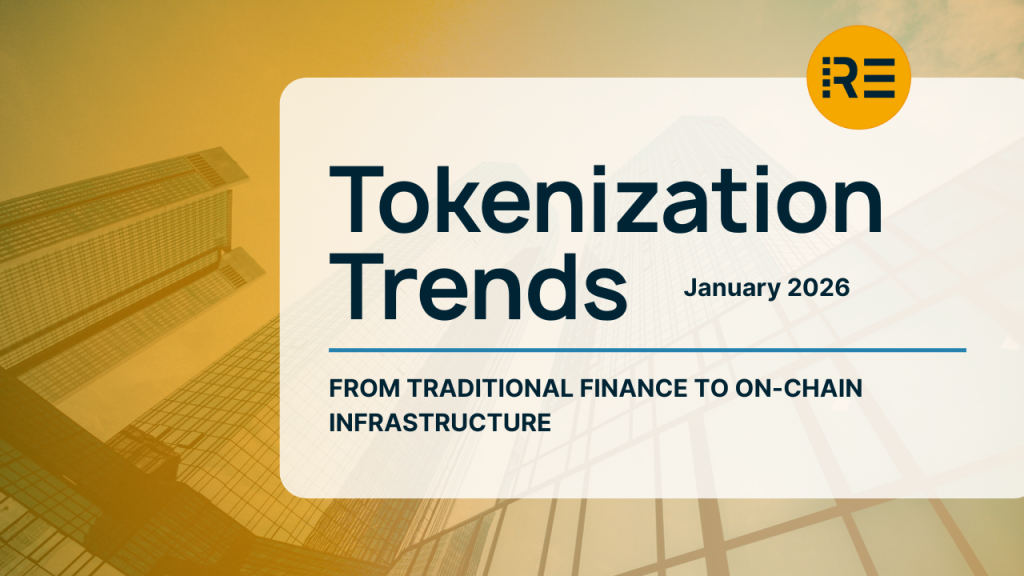You’ve built an impressive portfolio. Your properties are cash-flowing. Values are appreciating. On paper, you’re worth millions..
But when a once-in-a-decade opportunity appears—the perfect acquisition, a value-add deal that won’t last—you face the same frustrating reality: your equity is likely trapped… what can you do?
Traditional real estate investing creates a paradox: the more successful you become, the more capital you have locked away in properties you can’t easily access.
The Traditional Equity Dilemma
For decades, real estate investors have accepted illiquidity as an unavoidable cost of doing business. Your options for accessing equity have likely been limited and problematic.
Option 1 is to sell the property. Unfortunately the problem is you could lose your cash flow forever and the reality is capital gains taxes can end up being 20-30% of your profit. As well, it will likely take between 3-6 or even 9 months or longer from listing the property to closing the deal. And finally, there is the risk that you give up on a performing asset for unknown potential on future opportunities.
Option 2 is you could refinance your property. The problem is that banks control the timeline and terms and the reality here is that it’s also a 3-6+ months process with a lot of administration work, documentation and negotiations. Rate shopping, appraisals and underwriting are all part of the process and could cause delays. There is also the risk that the new debt service may not support your desired cash flow goals.
Option 3 is to explore hard money loans but they are an expensive short term capital option and the reality is they likely come in with a 10-15% interest rate plus points. This is easy and fast to accomplish but often costly and the risk is that the short repayment periods create additional pressure especially during unforgiving markets and economic conditions.
And finally there is a fourth option to do nothing but the problem is you’ll likely be watching opportunities pass you by and competitors with better capital access win the deals. Your equity is staying trapped and you risk being permanently limited by your current portfolio.
Each traditional option forces you to choose between keeping your performing assets and pursuing new opportunities. It’s a choice that shouldn’t exist in modern real estate investing.
The Potential with Tokenization: Access Equity With More Flexibility
Real estate tokenization has fundamentally changed the equity equation by creating another option that hasn’t existed before: access your equity while maintaining ownership and control of your properties.
How It Works
When you tokenize a property, you’re creating digital ownership units that can be traded on secondary markets. Think of it like this:
Traditional Ownership: One person owns 100% of the LLC that owns the property
Tokenized Ownership: 100 people can each own 1% through digital tokens representing LLC membership interests
The property itself doesn’t change. Your operational control doesn’t change. What changes is the ability to create liquidity through partial ownership transfer.
Real-World Application
Let’s look at how this works in practice:
Scenario: You own a multifamily property worth $5M with $2M in equity. You need $800K for a new acquisition.
Traditional Approach:
- Refinance: 4-6 months, new debt service obligations, appraisal risks
- Sell: Lose the asset permanently, capital gains taxes, 6-month timeline
- Hard money: 12-15% interest, short-term repayment pressure
Tokenization Approach:
- Create a secondary market listing for a portion of your ownership
- Maintain property control and management
- Access approximately $800K by selling 16% of tokens to qualified investors
- Potential Timeline (after tokenization process): 3-6 weeks instead of 4-6+ months
- Keep your cash-flowing asset and pursue the next opportunity
The key difference: You have the potential to access capital without refinancing, selling, or taking on expensive debt.
Benefits of Unlocking Equity Through Tokenization
1. Speed to Capital
Traditional methods offer access in months. Tokenization has the potential to offer access in weeks.
When a time-sensitive opportunity appears, the syndicator who can move fastest wins the deal. Secondary market token trading eliminates the lengthy bank approval processes, complex refinancing procedures, and buyer qualification timelines that create delays.
Real Impact: The potential to close on new acquisitions faster by accessing equity in weeks instead of months.
2. Maintain Property Control
Perhaps the most significant advantage: you remain the managing member of the property LLC.
Token holders have the same economic rights as traditional LLC members—they receive distributions, benefit from appreciation, and enjoy tax advantages—but the operating agreement maintains your control over:
- Property management decisions
- Capital improvement timing
- Refinancing strategies
- Hold period and exit timing
- Day-to-day operations
Real Impact: Access capital without surrendering the operational control you’ve worked years to establish.
3. Strategic Flexibility
Unlike refinancing (which increases debt service) or selling (which eliminates the asset), tokenization gives you more control over how much equity to access.
Market conditions change? Adjust your strategy. Found a better opportunity? You have options traditional methods don’t provide.
Real Impact: Match your equity access to your opportunity without over-leveraging or under-capitalizing.
The Compound Effect: Beyond Single-Property Access
The true power of tokenization extends beyond individual property equity access. It has the potential to create systematic advantages:
Portfolio Optimization
When every property can potentially provide liquidity, you optimize at the portfolio level rather than the property level. You can potentially:
- Maintain high-performing assets instead of selling them to fund acquisitions
- Balance debt and equity across properties more strategically
- Respond to market opportunities without disrupting successful operations
- Potential to create backup liquidity options before you need them
Investor Attraction
Sophisticated investors increasingly looking for liquidity flexibility. Tokenization positions you to potentially attract:
- Higher-net-worth investors who value flexibility
- Institutional capital seeking professional platforms
- International investors who prefer digital ownership
- Younger investors accustomed to liquid investments
Competitive Positioning
While your competitors remain limited by traditional equity constraints, you gain first-mover advantages:
- Potential to win time-sensitive deals through faster capital access
- Opens possibility to pursue larger opportunities by unlocking portfolio equity
- Enables the ability to scale operations without proportional equity constraints
- Get the chance to build your reputation as an innovation leader
Getting Started: Your Path to Unlocking Equity
Creating a pathway to opening up trapped equity through tokenization involves three straightforward steps:
Step 1: Evaluate Your Portfolio
Identify which properties are strong candidates for tokenization:
- Stable cash flow demonstrating consistent performance
- Clear documentation and professional management
- Properties that you want to hold long-term
- Equity positions where you could benefit from partial liquidity
Step 2: Structure for Success
Work with digital securities attorneys to:
- Update LLC operating agreements for token compatibility
- Ensure SEC compliance for token offerings
- Create proper documentation for investor transparency
- Establish governance structures that maintain your control
Step 3: Tokenization for Access to Capital Markets
Partner with professional tokenization platforms to:
- Create digital tokens representing ownership interests
- Access secondary market trading options
- Manage ongoing compliance and investor relations
The Future of Real Estate – Creating a Pathway to Potential Liquidity
Tokenization isn’t replacing traditional real estate ownership—it’s enhancing it by adding the liquidity potential that’s been missing for decades.
Forward-thinking syndicators are recognizing that trapped equity represents opportunity cost. Every dollar locked in existing properties is a dollar you can’t deploy into new acquisitions, value-add improvements, or market opportunities.
The question isn’t whether tokenization will become standard practice—it’s whether you’ll be an early adopter benefiting from first-mover advantages or playing catch-up later.
Ready to Explore the Potential of Tokenization to Unlock Trapped Equity?
REtokens specializes in real estate tokenization, providing end-to-end support from initial strategy through ongoing compliance management. Our education-first approach ensures you understand every aspect of the process before committing.
Schedule your tokenization discovery session →
Learn how leading syndicators are looking to unlock trapped equity without selling properties, taking on new debt, or surrendering operational control.





